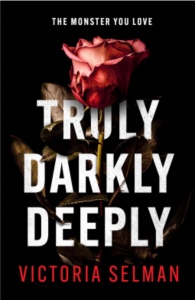Traditionally, NaNoWriMo works best when you start a brand-new project. It may be an arbitrary distinction, but we’ve seen that novelists do better (and have more fun) when they’re free from the constraints of existing manuscripts. Give yourself the gift of a clean slate!
That said, we welcome all writers at any stage. Outlines, character sketches, and other planning steps are encouraged. Just be sure to only count words written during the month. – NaNoWriMo FAQ
So it’s official, the big build up is now upon us. The website is open and updated for 2015 and you can now start to outline, plan and build character sketches for your November novel. I have always been, traditionally, a Pantster when writing short stories. I always enjoy the freedom of letting the characters, and the plot, develop as they go. One of the reasons I failed in my first NaNoWriMo attempt was that I applied the same, short story, logic to 50,000 words and, for me, it didn’t work.
That doesn’t mean that the characters don’t take on a life of their own, or change personality as circumstances alter. That, in my mind, is the great joy of writing, The ability to let the characters come alive on the page. So deciding on a name for each of the players, deciding if they will be main contributors or merely there to make up the numbers is great preparation and perfectly legal under the terms of the FAQ’s. It also takes a bit of pressure off you, the writer. Trying to remember if your leading lady has blue or brown eyes after 35,000 words takes a lot of recall, particularly if you have ten main participants in the tale. It’s the small trivia, like this, which can derail and develop into serious procrastination after a couple of weeks. Procrastination, often in the form of editing, sounds the death knell for 50,000 words. I know, I am a serious edit-as-I-go freak and you really can’t allow yourself that pleasure.
Life always has a habit of throwing a spanner in the works of your good intentions. Once your word count begins to fall behind it becomes increasingly more difficult to catch up. So any help you can give yourself in the preparation time will be highly beneficial come November 1st. Get your idea down on paper now, don’t just leave it in your head. Decide on characters; are they young or old, male or female, rabbit or donkey. Download an image of what, in your mind, they look like. Save it or print it off. If your story is set somewhere unfamiliar then get on Google Maps and search for it. Save the image so you can refer to it when you need to. All these things will save you time and allow you to get on with the process of writing.
October is the time for preparation, use it wisely.



